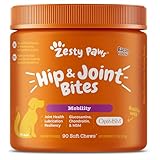When it comes to giving my furry friend the best nutrition possible, I like to look for wholesome and natural options. That’s why I’ve become interested in using chicken baby food for dogs.
It’s a convenient and easily digestible choice to enhance my pup’s diet, especially since they have a sensitive stomach and specific dietary requirements.
In this article, I’ll explain the advantages, things to remember, and how I can seamlessly include chicken baby food in my dog’s meal routine.
Overview
Chicken baby food is highly digestible perfect for infants, puppies, and dogs with sensitive stomachs or gastrointestinal issues. Packed with essential amino acids, vitamins, and minerals, it promotes muscle development, immune function, and overall health. It serves as a hypoallergenic alternative for dogs with food allergies or sensitivities.
Understanding Dog Nutrition
When it comes to ensuring the health and well-being of our canine companions, nutrition plays a pivotal role. Dogs require a balanced diet that provides them with essential nutrients to thrive. Critical components of a dog’s diet include protein, fats, carbohydrates, vitamins, and minerals.
Among these, protein is of utmost importance as it supports muscle development, immune function, and overall vitality. Chicken, a lean and highly digestible protein source, is an excellent addition to any dog’s diet.
Can Dogs Eat Chicken Baby Food?
Yes, dogs can eat chicken baby food as an occasional treat. However, it’s essential to make sure that the baby food you are giving to your dog is plain chicken without any added spices, seasonings, or ingredients that could be harmful to dogs.
You should always check the label for any potential ingredients that may be harmful to dogs, such as onions, garlic, or certain artificial sweeteners like xylitol, which can be toxic to dogs.
While plain chicken baby food can be safe for canines in moderation, it should not be a regular part of their diet. It’s important to remember that dogs have specific dietary needs, and their primary food source should be balanced dog food formulated for their age, size, and health condition.

Why Consider Baby Food for Dogs?
For dogs with specific dietary needs, such as those with sensitive stomachs or dental issues, baby food can be a game-changer.
Baby food is carefully formulated to be gentle on delicate digestive systems, making it an excellent option for dogs with dietary sensitivities.
It also eliminates extensive preparation, ensuring your furry friend receives a nutritious meal.
Benefits of Chicken Baby Food for Dogs
-
Digestibility: Chicken baby food is specially formulated for infants, making it gentle on the digestive system. This quality also makes it a suitable option for dogs with sensitive stomachs or gastrointestinal issues.
-
Nutrient-Rich: Chicken is a lean protein source of essential amino acids, vitamins, and minerals. It provides canines the necessary nutrients for muscle development, immune function, and overall health.
-
Hypoallergenic Option: For dogs with food allergies or sensitivities, chicken is often well-tolerated. Using chicken baby food can be a safe alternative to traditional dog food that may contain potential allergens.
-
Convenience: Chicken baby food comes in convenient jars or pouches, making it easy to portion and serve. This is especially handy for pet owners who are on the go or have limited time for meal preparation.
-
Versatility: Chicken baby food can be used in various ways, such as mixing it with kibble, adding it to homemade dog treats, or even using it as a topping for regular meals to entice picky eaters.
Related Post: Can Dogs Eat Chili Peppers?
Considerations Before Feeding Chicken Baby Food
-
Check the Ingredients: Ensure that the baby food you choose is made from high-quality, natural ingredients without any added artificial preservatives, flavors, or fillers.
-
Consult Your Veterinarian: Before introducing any new food to your pup’s diet, it’s essential to consult with your veterinarian, especially if your dog has specific dietary restrictions or health concerns.
-
Monitor for Allergic Reactions: Even though chicken is generally well-tolerated, some pets may still have allergies or sensitivities. Watch for signs of itching, digestive upset, or other allergic reactions.
-
Balance with Other Nutrients: While chicken baby food is a nutritious option, it should be part of a balanced diet. Ensure your furry friend receives nutrients from other sources, such as vegetables, grains, and supplements.
Incorporating Chicken Baby Food into Your Dog’s Diet
-
Mixing with Kibble: Gradually introduce chicken baby food with your dog’s regular kibble. Start with a small amount and observe how your dog responds before increasing the portion.
-
Homemade Dog Treats: Use chicken baby food as an ingredient in homemade dog treats. Combine it with other dog-friendly ingredients like oats, peanut butter, and carrots to create tasty and nutritious treats.
-
Topping for Regular Meals: To add extra flavor and moisture to your dog’s meals, use a small amount of chicken baby food as a tasty topping. This can be particularly helpful for dogs who are finicky eaters.

Homemade vs. Store-Bought: Which is Better?
Both homemade and store-bought options have their merits. Homemade chicken baby food allows complete control over ingredients, ensuring your dog receives a personalized and balanced meal.
On the other hand, store-bought options offer convenience, making them a suitable choice for busy pet owners. It’s crucial to weigh the pros and cons based on your dog’s needs and lifestyle.
Dogs Friendly Baby Chicken Food Recipe
Ingredients:
-
1 cup boneless, skinless chicken breast (cooked and diced)
-
1/2 cup cooked carrots (mashed or pureed)
-
1/2 cup cooked peas (mashed or pureed)
-
1/2 cup cooked sweet potatoes (mashed or pureed)
-
2 cups low-sodium chicken broth (homemade or store-bought)
Instructions:
-
Cook the boneless, skinless chicken breast by boiling or baking it. Make sure it’s cooked thoroughly and doesn’t contain any seasonings, especially garlic or onions, which can be harmful to dogs.
-
Once the chicken is cooked, let it cool and dice it into small, bite-sized pieces.
-
Cook the carrots, peas, and sweet potatoes until soft and easily mashed or pureed. You can steam, boil, or bake them. Be sure not to add any seasonings or spices.
-
Mash or puree the cooked vegetables individually. You can use a food processor or a blender to achieve a smooth consistency.
-
Combine the cooked, diced chicken with the mashed or pureed vegetables in a bowl.
-
Slowly add the low-sodium chicken broth until you achieve the desired consistency. You can adjust the broth amount to make it more or less liquid, depending on your dog’s preference.
-
Let the mixture cool to a safe temperature before serving it to your puppy.
-
Serve a small amount to your dog as a treat or mix it with their regular food to add extra flavor and nutrition.
Benefits of Feeding Senior Dog Baby Food
Feeding baby food to a senior dog should be done with caution and under the guidance of a veterinarian. While baby food may be more accessible for a senior dog to eat due to its soft texture, it’s essential to ensure that it meets their nutritional needs.
Essential Considerations for Senior Dogs:
-
Consult Your Veterinarian: Always seek advice before making significant dietary changes.
-
Check Nutritional Content: Ensure it meets the senior dog’s specific needs.
-
Avoid Harmful Ingredients: Watch out for onions, garlic, and spices, which can be harmful.
-
Monitor for Allergies: Be aware of potential allergens in the baby food.
-
Avoid Added Sugars and Salt: Check labels for these potentially harmful additives.
-
Consider Texture and Consistency: Soft texture may be easier for senior dogs with dental issues.
-
Transition Gradually: Introduce baby food slowly, mixing it with regular food.
-
Monitor Weight and Health: Keep an eye on your dog’s weight and overall health.
-
Not a Sole Source of Nutrition: Baby food should complement a balanced diet, not replace it.
Related Post: Are Oil Pastels Toxic To Dogs?
How to Choose the Right Chicken Baby Food for Your Dog
When opting for store-bought baby food, scrutinizing ingredient lists is paramount. Look for options that contain high-quality chicken as the primary ingredient, without any harmful additives or preservatives.
Opting for organic or all-natural varieties can provide an added level of assurance regarding the quality of the product.
Safety First: Foods to Avoid Mixing with Baby Food
-
Onions and garlic
-
Grapes and raisins
-
Chocolate
-
Xylitol (sugar substitute)
-
Spices and seasonings
-
High-fat foods
-
Bones (cooked)
FAQs
Can dogs eat all baby food?
Not all baby food is safe for dogs. Some may contain ingredients that are harmful to them, like onions or certain artificial sweeteners.
Which baby food is safe for dogs?
Baby food that is safe for dogs typically includes plain, unseasoned meats like chicken, turkey, or beef, along with plain fruits and vegetables like carrots, green beans, or apples.
Can I give chicken feed to my dog?
While dogs can eat some types of chicken feed, there are better sources of nutrition for them. Commercial dog food is designed to meet their specific dietary needs.
Can dogs eat chicken every day?
It’s generally safe to include chicken in your dog’s diet as part of a balanced meal plan but feeding it exclusively daily may provide only some of the necessary nutrients.
Can I give baby food to dogs with diarrhea?
Yes, certain baby foods can be given to dogs with diarrhea. Plain, unsweetened canned pumpkin or plain boiled chicken and rice are commonly recommended options to help settle their stomach. Always consult your vet for specific advice.
Final Thoughts
Chicken baby food for dogs can be a beneficial addition to your pet’s diet, providing them with a high-quality source of protein and essential nutrients. Its gentle nature and versatility make it a convenient option for pet owners looking to provide their dogs with a wholesome and delicious meal.
Always consult your veterinarian before making significant changes to your dog’s diet and monitor their response to the new food.
With proper introduction and moderation, chicken baby food can be a nutritious and enjoyable part of your dog’s culinary experience.










![Can Dogs Eat Blood? 7 Side Effects [Expert Opinion]](https://petskor.com/wp-content/uploads/2022/04/Webp.net-resizeimage-12.jpg)
